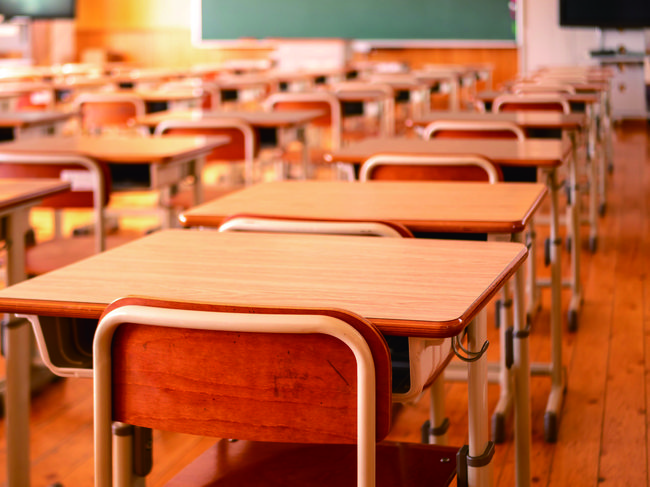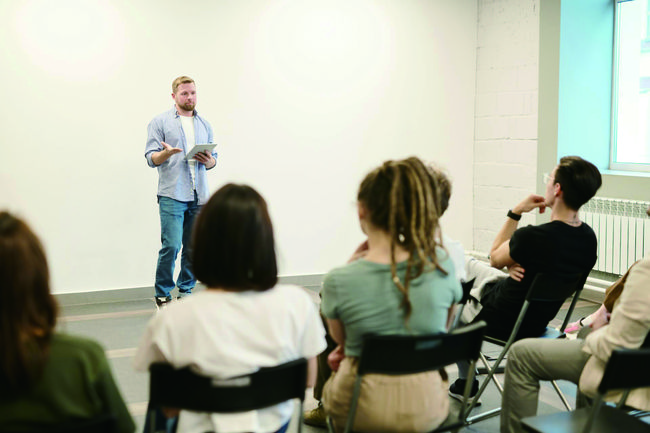November is a really important month of the year, especially for high school students in Korea. The reason is that one of Korea’s biggest exams, the “suneung,” is held in November. The suneung is the most common way to qualify for college and it has a considerable impact on the whole country. For example, at the time of the listening comprehension portion of the English exam, all airports pause takeoffs and landings, and if there is a late student, police take them to their examination location. The reason people care so much about the suneung is that it determines where you can go to college. In Korea, college is directly connected to employment. The better college you go to, the better your chances of getting a good job. Therefore, Koreans risk everything for the college entrance exam.
This kind of social phenomenon has existed since a long time ago and has led to “degreeocracy.” Degreeocracy is the attitude of emphasizing one’s alma mater and ranking it in a hierarchical manner. In other words, people make groups with other people who attended the same college and use these groups for networking and social advantages. The problem is those who did well on the suneung attend a better college and take a position at the top of the hierarchy. Therefore, those at the top have more power and have stronger bonds. For this reason, how much you studied and where you studied are important things for Koreans and have led Korea to become a credentialist society.

As a result, studying is a huge burden for most students. Korean students' academic achievement has been ranked 6th among 64 countries since 2020. However, according to Statistics Korea, 38% of students who participated in the survey listed studying as the biggest reason for their stress. Not only high school students but also middle school students feel this way. Furthermore, the score for satisfaction of life was 79.5 out of 100 which is last place among all 22 of the OECD countries. Actually, Korean students get significantly less sleep than students in other OECD countries. The average sleep time of teenagers in other countries is 8 hours, while the average sleep time of Korean teenagers is 5 hours and 27 minutes. The average sleep statistics of Korean high school students, which the Korea Youth Policy Institute has surveyed since 2009, has continued to decline. 69.5 percent of Korean high school students think they lack sleep. As a reason for the lack of sleep, 52.6 percent of Korean high school students cited self-studying at night or the method of staying at school until 10 p.m. after school hours to study more.
Another problem with credentialism is that it creates a social perspective on education. The passion for private education is more visible to parents than to students. Parents want to send their children to prestigious universities to get jobs at good companies and live on their own. This is the definition of success in Korea. The students' ultimate goal is to eventually develop the ability to make money on their own and live a decent life. Because of these stereotypes about life, most Koreans are similar in both the direction and the curves of their lives. Koreans live in a self-perpetuating cycle of stress.
What about credentialism in France? France’s education system offers a more diverse and adaptable approach to learning compared to Korea’s highly credential-focused structure. Where Korea emphasizes academic achievement and university entrance as primary goals, France provides students with multiple pathways to success, allowing them to pursue career opportunities beyond the traditional university track. This flexibility creates an environment where students can tailor their education to suit their individual goals and interests, reducing the societal pressure associated with university admission.

One of the key distinctions between the two systems is the role of vocational training in France. Unlike in Korea, where academic success is largely equated with university entrance, French students can choose to attend “lycées professionnels” or technical programs such as the “BTS” (Brevet de Technicien Supérieur). These paths are designed to provide practical, job-specific training that prepares students for the workforce upon graduation. Vocational programs in France are widely respected and offer a direct route to employment in various industries, such as engineering, healthcare, and hospitality. This diversification of educational paths helps students who may not be academically inclined or interested in pursuing higher education to find stable employment without the need for a university degree.
Furthermore, France’s focus on vocational training contrasts sharply with Korea’s more rigid academic system, where university education is seen as the primary means to securing a high-paying job and societal recognition. In Korea, attending a prestigious university often becomes a marker of status, and students face immense pressure from a young age to excel academically. This creates a narrow definition of success, where academic failure can be seen as a life-altering setback. In contrast, France's system encourages a more balanced view of education, where students are free to pursue paths that align with their personal strengths and career ambitions.
That said, France’s Grandes Écoles — prestigious institutions that offer specialized education in fields like engineering, business, and public administration — do play a significant role in credentialism, particularly in sectors such as politics and business. Admission to these schools is highly competitive, and graduates of Grandes Écoles often hold key positions in the country’s leadership and business elite. However, unlike Korea’s all-encompassing focus on university rankings, the French system does not place the same level of societal pressure on students to attend these institutions. Many students can achieve professional success through alternative educational routes, and vocational training remains a respected path to gainful employment.
A major factor that sets France apart from Korea is how employers in the French labor market assess qualifications. In France, employers tend to value practical experience, internships, and vocational skills as much as, if not more than, formal academic credentials. This creates a more open labor market, where students with diverse qualifications have opportunities to succeed. While a degree from a prestigious institution can still be advantageous in certain sectors, many employers look beyond academic performance and seek candidates with hands-on experience and industry-specific training. This encourages students to seek internships and gain practical skills, reducing the focus on academic prestige alone.
By contrast, in Korea, university prestige plays a much more decisive role in employment prospects. The job market is highly competitive, and companies often prioritize candidates from top universities, regardless of their real-world skills or experience. As a result, the pressure to attend a top-tier institution can overshadow other aspects of education, leading to a system that is more rigid and less forgiving of alternative educational paths.
Efforts by the government to solve the problems caused by this type of education system in Korea and France are still ongoing. In Korea, the categories of subjects for examination given by the suneung are based on official workbooks from publishers in charge of public education. A separate commentary course is also provided for students who reduce the proportion of private education and self-study. In France, the government decided to put a difference between wages and subsidies for the school to solve social inequality caused by the education system. However, improving the education system requires not only efforts at the government level but also efforts of individuals and even society itself. We must break away from the idea that studying alone is the only guarantee of a successful future. We must strive to find the joy of real learning and the joy of real life.
81st Cub Reporter • KIM TAE WOO • jerryfighter27@gmail.com
81st Cub Reporter • CHO SE RYOUNG • sceyesgaze@kyonggi.ac.kr
International Reporter • ZEGHLACHE MAËL • maelzeghlache@gmail.com
- TAG









